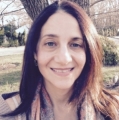You have no items in your cart. Want to get some nice things?
Go shoppingEntries make me uneasy. I dislike the shift in speed induced by Earth’s gravity, the subtle but recognizable odor of decay and the gust of freshened air that’s puffed into the spacecraft to mask it. More than anything, I hate being away from my work in the lab. Nil, sensing my apprehensions mounting, crawls out of my shirt pocket and glides up my pectoral muscle. He finds my heart and adheres, and his touch is as comforting as any human mouth. It will be okay, he whispers. It will be okay.

Nil is a sliver of plastic made in Antarctica, where billions like him are produced. He may be nothing much, as his name happens to suggest, but while this entry lasts, and until the mission is over, he is my entire life. The reason I agreed to the mission is because I had little choice but to.
I was monitoring the development of a human brain when Shine showed up at my bench. On my screen nerve fibers signaling the smell of sweat were closing in on each other, converging like family members on a home. I looked up to see Shine smiling at me, and heard him say: “Because people remaining on Earth are suffocating in their waste, it’s up to us, up to this fine lab of ours, to leave evidence for future generations.”
Shine is over one hundred years old and his teeth are sparkling white. This shouldn’t surprise me, but it does. It has always seemed to me there’s more to those teeth, to the smile, than I will ever comprehend. Caught between the smile and his words, I foolishly asked, “You’re sending me out there to collect air?”
He gave me a pat on the back, said, “I knew I could count on you, David,” and with this handed me a list of galactic coordinates whose forgotten names evoked a longing in me similar to pangs of hunger: Amsterdam, Mumbai, Manhattan, Tianjin, Kabul, Sidney, Lima…
The misty patch of high rises closing in on our descent is the last of these cities, the jagged terrain outside my window the final earthly place whose air I will sample before our return home. The spacecraft door dissolves and I step outside, onto smoky concrete—Nil in my pocket and a rack of sniffing vials dangling from my hand. Across a web of sunlight the outline of a street comes into view, and gathered around an endless row of platforms, thousands of people. It has been said at home that in a planet twice as large as Earth overpopulation would have still been our fate; that our tendency to converge and multiply is imprinted in our very atoms. But at age twenty-one I feel it may be a very long time before I decide to partner with someone—if I ever do.
At the bend of the crowded street there’s the familiar smell of urine festering, and metal burning, the sight of masses of people clustered like nerve fibers around each other. Along a stretch of beaten platforms a man juggles sticks on fire, a woman swims naked inside a tank, a child sings—in every city the homeless and the destitute doing whatever they can to survive. I’m tempted to leave a token, but while the vials are collecting air I’m not allowed to interact with or speak to anyone, lest I compromise the results. Still, before I know it I’ve dropped a sphere of gold inside a passing tin.
The person holding the tin out, a ragged girl about my age, acknowledges my contribution with a nervous little nod, gazing up at me with a timid but grateful smile. It seems to me I’ve never seen a lovelier human being, or a more tired one. But who am I to judge?
Hours later, on my way back to the spacecraft, the girl trails behind me. “You shouldn’t be following me,” I say.
“Take me with you,” she begs. “Please take me with you.” In my pocket Nil purrs. I want to tell her I’m on a mission, and that the spacecraft fits only one person. I want to explain that where I come from isn’t the most humanly inviting of places either. Instead I find myself saying, “I’ll come back for you.” And the words sound inexplicably hollow. Take off is soundless. As we ride out of Earth’s atmosphere into space something tells me I will never see this girl again, and something else, jutting out between the rise and falling of my chest, tells me that I will. The Space Station I call home is only a little bit away, but Nil, sensing something is wrong with me, finds my heart and adheres. It will be okay, he whispers. It will be okay.

Andrea Rothman
Andrea Rothman was a postdoctoral fellow and subsequent research associate at the Rockefeller University in New York, where she studied the neurobiology of olfaction. She earned her MFA in writing from Vermont College of Fine Arts. Her fiction has appeared in Ducts, FutureCycle Press, Lablit, Cleaver Magazine, and is forthcoming in Avalon Literary Review. She is at work on her first novel.




